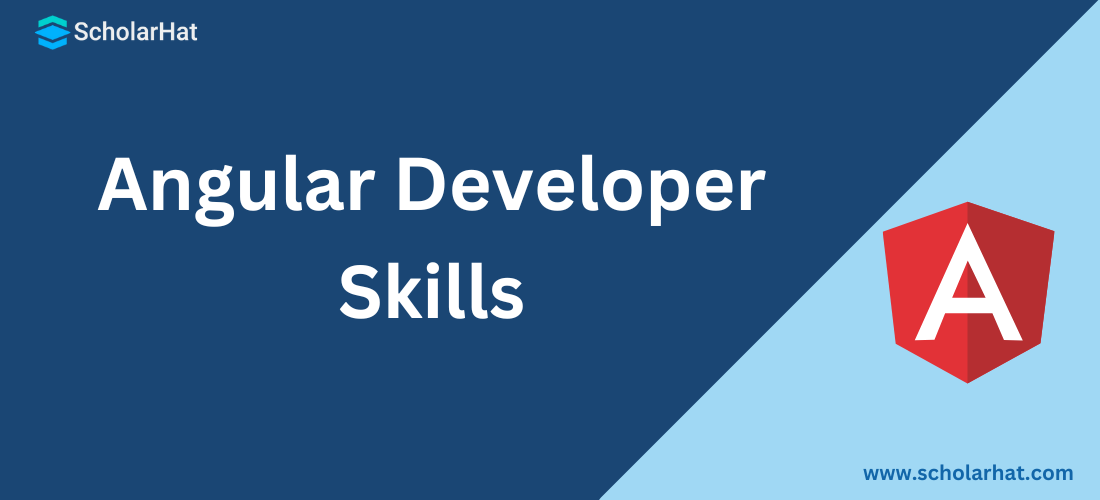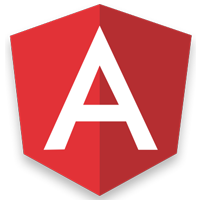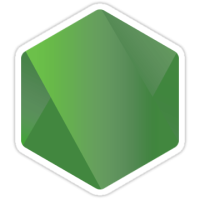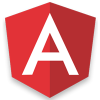18
AprAngular Developer Skills to Become an Angular Developer
Angular Developer Skills
In the fast-paced world of web development, staying relevant and mastering the right skills is crucial for professionals. Angular, a robust and widely used front-end framework, has become a cornerstone in building dynamic and responsive web applications. It is a modern, modular, and component-based framework for building scalable and dynamic web applications.
To excel as an Angular developer, individuals must possess a diverse set of skills that go beyond basic coding abilities. In this Angular tutorial, we will explore the top 10 essential Angular Developer skills, their roles and responsibilities, upskilling, etc, that Angular developers should cultivate to thrive in the ever-evolving landscape of web development.
What is Angular?
Angular is a client-side web application framework mainly used to create single-page applications (SPAs) with HTML and TypeScript, a JavaScript superset. This open-source framework is also used to construct desktop, mobile, and web apps. Its objective is to simplify and organize the JavaScript language.
It does this by enabling data binding and dependency injection, which prevents sections of code one has to write to a large amount. The Angular framework has numerous advantages, including modularity, the ability to extend HTML characteristics, event handling, routing, composability, controllers, services, HTML rendering, ease of use (particularly for novices), unit testing, and much more.
Read More - Angular Interview Questions for Experienced
10 Essential Skills for Angular Web Developers
To be a proficient Angular developer and create modern web applications, you need to have a variety of technical skills. The abilities required to be an Angular JS developer are as follows:
1. Proficiency in TypeScript
Angular is built with TypeScript, a superset of JavaScript that adds static typing to the language. A strong command of TypeScript is fundamental for Angular developers, as it enhances code maintainability, improves tooling support, and catches errors during development rather than at runtime. Developers should be comfortable with TypeScript features such as interfaces, classes, and decorators.
2. Understanding of Angular Framework
Angular applications follow a modular architecture that includes components, modules, services, and directives. A skilled Angular developer should have a deep understanding of how these components interact with each other. Proficiency in organizing and structuring an application using Angular modules is essential for scalability and maintainability.
3. Command of Angular CLI
Angular Command Line Interface (CLI) is a powerful tool that automates everyday development tasks, such as project scaffolding, building, testing, and deployment. Angular developers should be proficient in using Angular CLI to streamline their workflow and optimize the development process.
4. Strong HTML and CSS Skills
While Angular focuses on dynamic content and interactivity, a solid foundation in HTML and CSS is still essential. Angular developers should be capable of creating clean, semantic HTML and styling it effectively using CSS or pre-processors like Sass or Less.
5. JavaScript Fundamentals
The core language of web development is JavaScript. To work with Angular JS developer skills and related technologies, a solid understanding of JavaScript is needed. Programming languages such as JavaScript enable developers to create dynamic and interactive web apps.
6. Component-Based Architecture
Building scalable Angular apps requires an understanding of component-based architecture principles and the construction of reusable and maintainable components. This approach promotes testability, reusability, and modularity in the code.
7. Knowledge of State Management
As applications grow in complexity, managing state becomes critical. Angular developers should be familiar with state management solutions, such as NgRx, which is based on the Redux pattern. This knowledge helps in maintaining a predictable state and simplifies data flow within the application.
8. Experience with Reactive Programming
Angular leverages reactive programming paradigms, primarily through the use of RxJS (Reactive Extensions for JavaScript). Angular developers should be well-versed in working with Observables and understanding concepts like reactive forms. Reactive programming enhances the responsiveness and scalability of Angular applications.
9. Unit Testing and End-to-End Testing
Writing robust and maintainable code requires a strong testing strategy. Angular developers should be adept at writing unit tests for individual components, services, and modules using tools like Jasmine and Karma.
Additionally, knowledge of end-to-end testing with tools like Protractor is crucial for ensuring the overall functionality of an application.
10. Version Control (Git)
Git is the de facto standard for version control in software development. Angular developers should be proficient in Git and understand branching, merging, and resolving conflicts to collaborate effectively with other team members.
| 👉 Explore Angular Developer roadmap |
Angular Developer’s Primary Job and Responsibilities
1. Angular Application Development
- Develop and maintain web applications using the Angular framework (specifying the version) to meet project requirements.
- Create responsive, visually appealing, and user-friendly interfaces.
2. Code Implementation
- Write clean, modular, and scalable code to implement features and functionalities.
- Implement best practices and coding standards to ensure high-quality code.
3. Component-Based Architecture
- Work with a component-based architecture, creating and maintaining components that encapsulate different parts of the application logic.
4. Data Binding and Templating
- Implement two-way data binding and templating to connect the application's data model with the user interface.
5. Routing
- Implement and manage application routing to enable navigation between different views and components.
6. Services and Dependency Injection
- Develop and use Angular services for managing data, business logic, and application-wide functionalities.
- Utilize dependency injection to provide components with the necessary services.
7. RESTful API Integration
- Integrate with back-end services and APIs, ensuring seamless communication between the front-end and back-end systems.
8. Testing
- Write unit tests and conduct end-to-end testing to ensure the reliability and robustness of the application.
- Testing frameworks such as Jasmine and Karma are used to perform unit testing.
How to Learn Angular Skills?
- Official Documentation: Start with the official Angular documentation. It provides comprehensive and up-to-date information on Angular concepts, features, and best practices.
- Online Courses: Enroll in online courses on platforms like ScholarHat. Look for an Angular Certification Course taught by experienced instructors with good reviews.
- Follow Tutorials: Follow step-by-step tutorials to build specific features or applications. ScholarHat offers Angular online tutorials.
- Books: Read books on Angular development. Popular choices include "Angular Development with TypeScript" by Yakov Fain and Anton Moiseev or "Pro Angular" by Adam Freeman.
- Practice with Projects: Build small projects to practice your skills. This hands-on approach is crucial for gaining practical experience and understanding real-world applications.
- Join Coding Communities: Participate in coding communities such as Stack Overflow, GitHub, or the Angular community forums. Engaging with others can help you learn from experienced developers and troubleshoot issues.
- Attend Meetups and Conferences: Attend local meetups, workshops, or Angular conferences to network with other developers and stay updated on the latest trends and best practices.
Top Soft Skills for Angular Developers
- Communication Skills: Clear communication is essential for working in a team. Expressing ideas, providing updates, and understanding requirements are crucial aspects.
- Problem-Solving: Strong problem-solving skills help in identifying and resolving issues efficiently, which is a significant part of software development.
- Team Collaboration: Being a team player is crucial for collaborative projects. This involves sharing knowledge, supporting team members, and contributing positively to the team dynamic.
- Adaptability: The tech industry evolves rapidly. Being adaptable allows you to embrace new technologies, methodologies, and changes in project requirements.
- Attention to Detail: Writing clean, maintainable code requires attention to detail. Minor oversights can lead to bugs, so being meticulous is essential.
- Time Management: Efficiently managing time and prioritizing tasks is crucial, especially when working on multiple features or projects simultaneously.
- Continuous Learning: Stay curious and committed to constant learning. This is essential in a field where technologies and best practices evolve rapidly.
How You Can Upskill as an Angular Developer
- Advanced Courses: To deepen your knowledge, take advanced courses on topics like Angular services, advanced routing, NgRx for state management, and server-side rendering.
- Explore Angular Ecosystem: Learn about related technologies in the Angular ecosystem, such as RxJS for reactive programming or Angular Material for UI components.
- Contribute to Open Source: Contribute to open-source Angular projects on GitHub. This not only enhances your skills but also provides you with exposure to real-world development scenarios.
- Build Larger Projects: Challenge yourself by building more significant, more complex projects. This will help you gain a deeper understanding of architecture, scalability, and best practices.
- Code Reviews: Participate in or conduct code reviews. Learning from others' code and receiving constructive feedback on your own code can significantly improve your skills.
- Follow Blogs and News: Stay updated on Angular-related blogs, articles, and news. Following key influencers and staying active in the community will keep you informed about the latest trends and updates.
- Mentorship: Seek mentorship from experienced Angular developers. Learning from someone with industry experience can provide valuable insights and guidance in your career.
Summary
A solid understanding of the framework, technical proficiency, and a commitment to continuous improvement are necessary for becoming an expert Angular developer. By mastering the fundamental skills covered in this article, developers may meet the demands of today's dynamic web development ecosystem by building scalable, maintainable, and feature-rich Angular apps.
Dedicating time to improving these abilities will undoubtedly help your success in Angular development, regardless of how experienced you are as a developer.
FAQs
- Handling Asynchronous Data
- Component Communication
- Performance Optimization
- Error Handling
Take our Angular skill challenge to evaluate yourself!

In less than 5 minutes, with our skill challenge, you can identify your knowledge gaps and strengths in a given skill.








